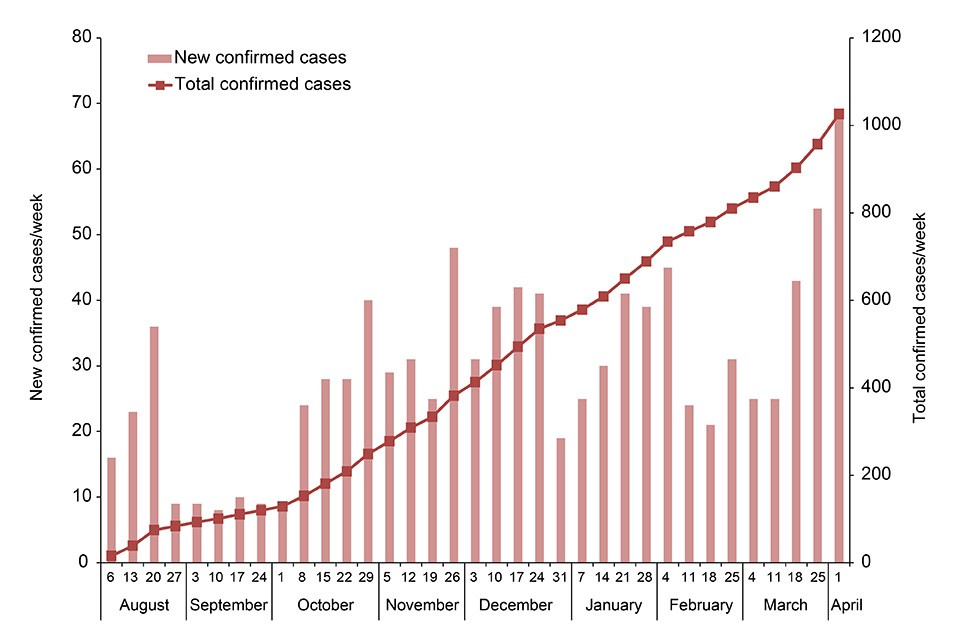HPR volume 13 issue 12: news (8 April)
Updated 20 December 2019
EVD outbreak in eastern DRC: eighth update
Control of the outbreak of Ebola virus disease in eastern Democratic Republic of the Congo – that was officially declared on 1 August 2018 – continues to present significant challenges.
As of 3 April 2019, 1,034 confirmed and 66 probable cases have been reported in North Kivu and Ituri provinces [1]. Of these, 210 were newly confirmed cases reported between 1 March and 3 April, twice the number in the last monthly update. Substantial week-on-week increases in cases have been seen in each of the last three weeks (see figure) with the week to 1 April recording the highest number to date during this outbreak. There have been 690 deaths, 137 since the last update.

New and total confirmed cases by week. Data provided by DRC MoH.
During March, the main hotspots of transmission have been Katwa, Mandima and Vuhovi, which together reported 63% (134/210) of the new cases. Twelve health zones have reported cases in the last 21 days. Overall, 21 health zones have reported cases since August 2018, with two (Lubero in North Kivu, and Bunia in Ituri) reporting cases for the first time during March.
A continuing high proportion (75%) of newly confirmed cases during March were amongst individuals either not known to be contacts of confirmed cases, or contacts not under active monitoring at the time of symptom onset or diagnosis. This is a persistent problem for the response, as are delays in detection, high numbers of community deaths, local movement of cases and nosocomial transmission. Further healthcare workers were confirmed as cases during March, bringing the total to 81.
After the attacks at Ebola treatment centres (ETC) at the end of February, the Katwa ETC officially reopened on 30 March [3]. Response efforts are still being met with strong community resistance and reluctance to participate – so greater engagement and partnering with them in response activities is being focussed on [4].
Despite the ongoing resistance to control measures, attitudes towards vaccination (and uptake) have improved. According to WHO, more than 90% of those eligible for vaccination accept it and agree to post-vaccination follow-up visits. In addition, analysis has shown that the vaccine is protecting at least 95% of those who receive it in a timely manner [5].
The risk to the UK public remains very low to negligible. The situation is being monitored closely and the risk assessment is regularly reviewed.
Further information sources
- GOV.UK website collection Ebola virus disease: clinical management and guidance
- NaTHNaC website travel advice Travel Health Pro website
- WHO website EVD homepage Ebola virus disease
- FCO travel advice DRC advice.
